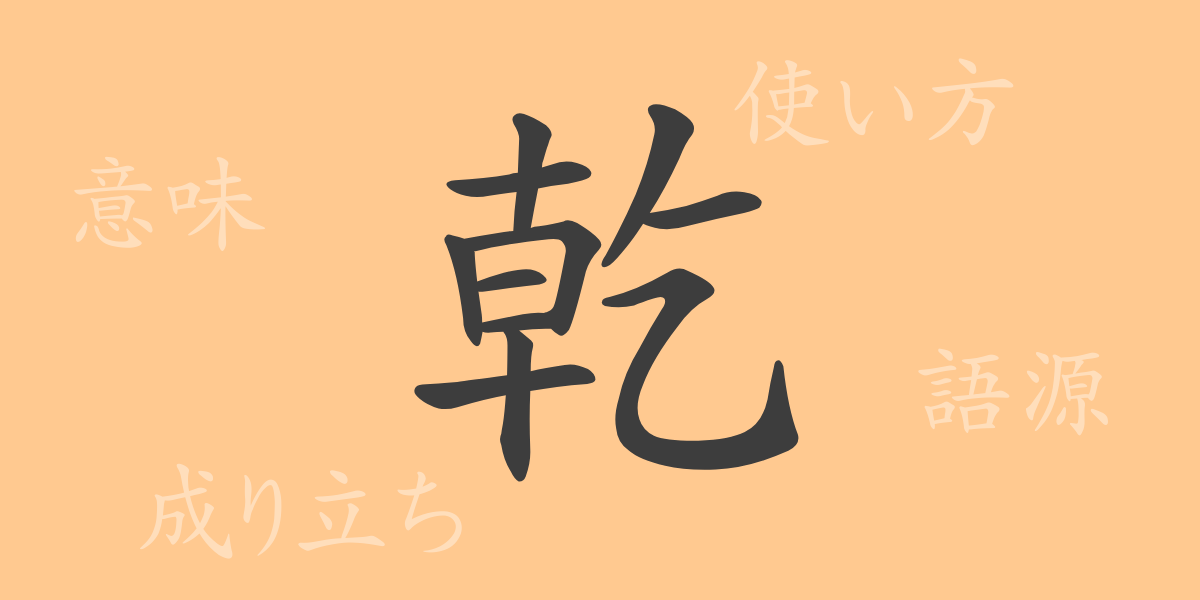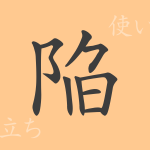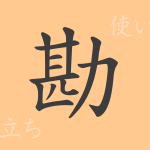Since ancient times, kanji have been deeply embedded in Japanese culture. Among them, “乾” (Kan) is known for its wide range of meanings and applications. This kanji, often seen in daily life, has a rich history behind it. In this article, we delve into the origins, meanings, and uses of “乾” (Kan), as well as familiar idioms and phrases, to explore its charm.
The Origins of 乾 (Kan)
The kanji “乾” (Kan) can trace its roots back to ancient Chinese oracle bone script. It was depicted as a pictogram representing the heavens, illustrating the concept of the sky covering everything. Additionally, “乾” (Kan) is one of the eight trigrams in the I Ching, symbolizing heaven and robustness, which contributes to the image of strength and positivity associated with this character.
Meanings and Uses of 乾 (Kan)
“乾” (Kan) has meanings such as “to dry” (Kawa-ku) and “to air” (Ho-su), indicating the process of something wet losing its moisture. Metaphorically, it is also used to signify the “starting point” of an endeavor. In terms of usage, it is commonly found in everyday expressions like “drying” (乾燥/Kannsou) and “toast” (乾杯/Kannpai), as well as in phrases that denote mental fulfillment and growth.
Readings, Stroke Count, and Radical of 乾 (Kan)
The kanji “乾” (Kan) has various readings in Japanese, with on’yomi and kun’yomi readings used according to the context.
- Readings: On’yomi is “カン” (kan), kun’yomi includes “かわ.く” (kawa-ku), “かわ.かす” (kawa-kasu), “ほ.す” (ho-su), “いぬい” (inu-i), and others.
- Stroke Count: “乾” (Kan) is a kanji character composed of 11 strokes.
- Radical: Its radical is “乙” (- otsu).
Idioms, Phrases, and Proverbs Using 乾 (Kan) and Their Meanings
There are numerous idioms, phrases, and proverbs that include “乾” (Kan), each with its unique meaning and application.
- 乾杯 (kanpai): A celebratory phrase said while raising a glass at the start of a meal.
- 乾坤一擲 ( kenkon’itteki): To take a big gamble, risking one’s fate.
- 天地乾坤 (tenchikenkon): A phrase that refers to the entire universe or world.
- 乾電池 ( kandenchi): A dry cell battery, which does not contain any liquid.
Conclusion on 乾 (Kan)
The kanji “乾” (Kan), with its profound meanings and history, is an important character frequently used in the Japanese language. Its applications range from practical expressions in daily life to philosophical and poetic expressions. Through this article, we hope you have gained a deeper understanding of the rich background and usages of “乾” (Kan), and that you can incorporate it into your own rich Japanese expressions.

























